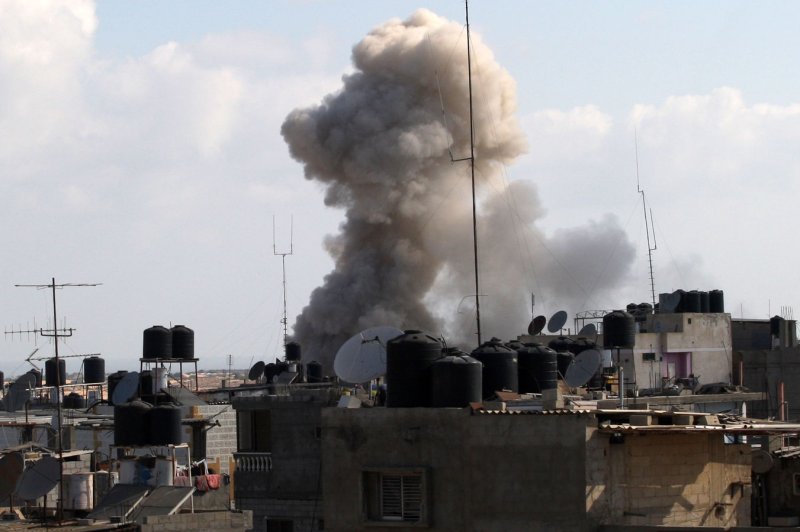Smoke rises from buildings hit by an Israeli airstrike in Rafah, Gaza Strip on July 16, 2014. Airstrikes by both sides were renewed Thursday after a five-hour truce. UPI/Ismael Mohamad |
License Photo
JERUSALEM, July 17 (UPI) -- A five-hour truce between Israel and militants in Gaza ended at the assigned time Thursday, with rockets sailing into Israel, renewing the hostilities.
Both sides agreed to a "humanitarian cease-fire", so that Gaza residents who have survived nine days of airstrikes -- directed at buildings suspected of housing Hamas leaders and bureaucracy -- could safely leave their homes.
Over 1,000 rockets from Gaza have rained down on Israel as well, but with less accuracy and fewer casualties. Hamas agreed to the temporary truce after 220 of Gaza's residents, the majority of them civilians, were killed in the nine-day confrontation.
From 10 a.m. until 3 p.m. Thursday it was quiet. Efforts are underway to broker another truce, to begin Friday evening.
At dawn, prior to the Thursday truce, 13 Gazan militants were attacked from the air as they emerged from a tunnel under the border near an Israeli border community. It was not clear if they all were killed, but the incursion into Israel was the first non-aerial military movement in the conflict.
The Israeli military is aware of a network of tunnels beneath the border, but destroying them from the air is difficult, an argument held by those who prefer a ground invasion of Gaza. At least 40,000 Israeli military personnel are stationed on the border and are prepared to invade, should that order come.
Israeli military spokesman Lt. Col. Peter Lerner referred to the tunnel incident as "a terrorist attack that could have had devastating consequences" had it not been discovered.















